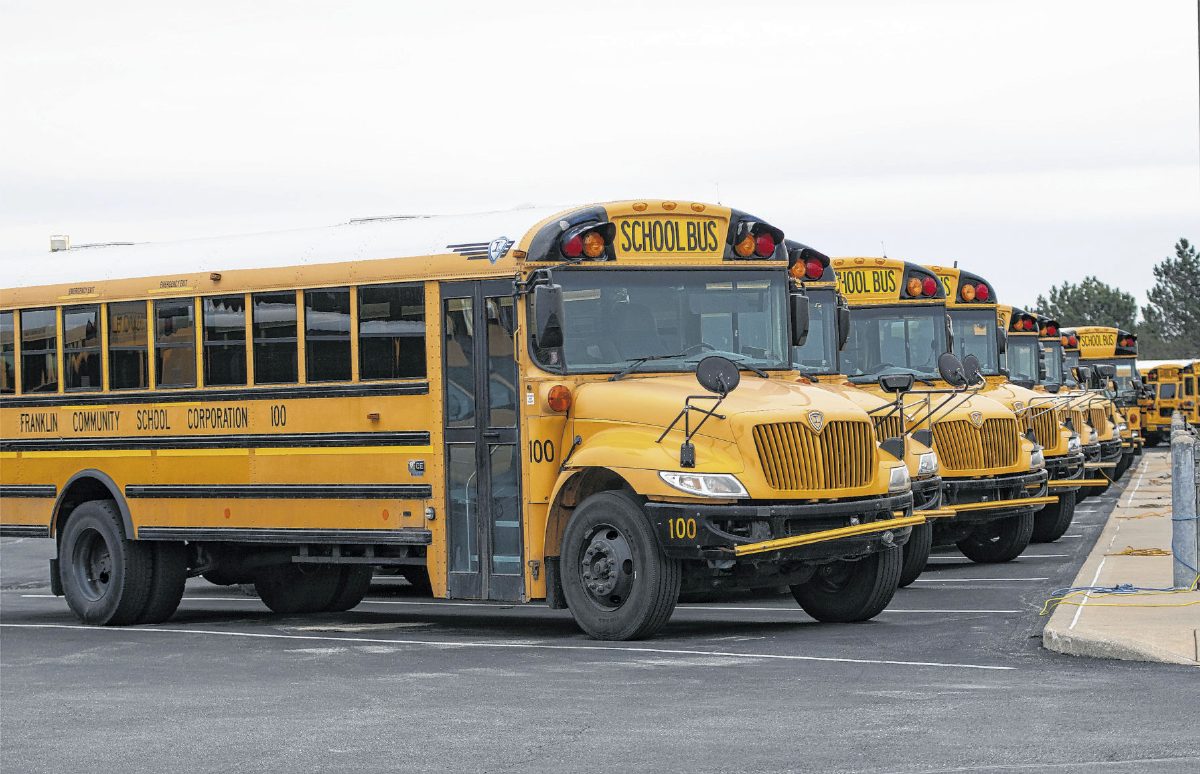Franklin schools is hoping a state-run fuel budgeting program will save it some money at the pump.
On Jan. 1, Franklin Community Schools will join the program, which provides insurance against unexpected spikes in gas and diesel prices. Last year, Franklin schools spent about $310,000 to fill up its 70 buses, said Doug Dickinson, Franklin schools’ transportation director.
If Franklin schools had joined the program in 2014, it would have saved more than $62,000 on fuel costs by now, according to school board documents.
[sc:text-divider text-divider-title=”Story continues below gallery” ]Click here to purchase photos from this gallery
It is a program of the Indiana Bond Bank, a state financing agency which contracts with taxing authorities, such as schools, hospitals and municipalities. The fuel budgeting program is based on the New York Mercantile Exchange’s, or NYMEX’s, gas and diesel prices, which run roughly 50 cents lower than the price people actually see at the pump. Those prices, however, carry no direct correlation to advertised prices at gas stations, said Ron Magnus, executive director of the bond bank.
The bond bank sets both a minimum and a cap on gas and diesel prices. If NYMEX goes above that cap, the bond bank is required to pay the school the difference per gallon. But if it falls below that minimum, the school must pay the bond bank.
For example, this year, the diesel minimum price was $1.51, while the cap was $2.13. Local gas prices carried a minimum of $1.28 and a maximum of $1.76, said Tina Gross, chief financial officer for Franklin schools.
The school will also pay a 4.5 cent per gallon fee to the bond bank. Floor and ceiling prices for 2020 are expected to be released on Dec. 20. Franklin schools is only on the hook for one year, and can decide each year if it wants to remain in the program, Gross said.
It helps with unexpected spikes in gas prices, she said.
“I spoke with a colleague at Warren Township about the program and he said, ‘Don’t look at it as a fuel savings program, but more like insurance.’ If there’s a crisis in the Middle East and gas prices spike, then we wouldn’t have to reduce our transportation services. Once I started thinking like that, it makes a lot more sense,” Gross said.
“I don’t see this as being a huge risk for us, but instead it will help me sleep better as we know we’ve always struggled with our transportation budget anyway. It would take any risk of a spike in fuel prices away.”
Although Franklin schools hasn’t had to make any transportation cuts, it is using eight propane buses this year, which cost about $3,500 less to fuel and maintain than diesel buses, as a precaution, Dickinson said in September.
Franklin schools is the only school district in Johnson County that has decided to participate in the program, Magnus said.
The program is a good way to protect against the volatility of oil markets, Dickinson said.
“It’s an insurance plan for your budget so that if the cost of diesel or gasoline gets outside of a certain limit, then they cover the area that’s outside of it,” Dickinson said. “Every year the costs are back and forth based on how volatile the markets are.”
The volatility of the market is demonstrated by statistics.
For example, Franklin schools would have lost almost $3,000 if it had participated in the fuel budgeting program in 2014 because prices went below the price minimum more frequently than it rose above the maximum. In 2015, the school would have saved more than $34,000 because the opposite occurred, according to school board documents.





